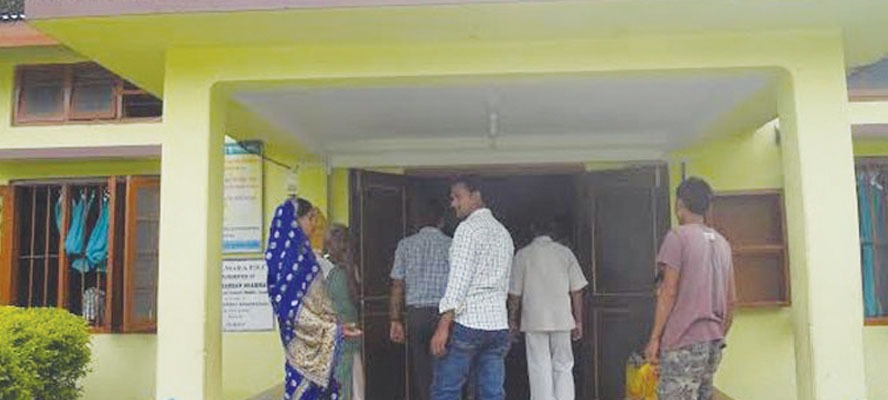The news from Gujarat and the advertisement given by Punjab government for handing over primary healthcare to private players is not unexpected. For the last 30 years all over world, the magic spell of the mantra of Public Private Partnership (PPP) is seen to have mesmerised policy makers. There is a growing emphasis to put healthcare in markets and to promote competition with the hope that this would prove to be a panacea for defunct public healthcare.
India too gradually opted for passive privatisation of healthcare. Under World Bank’s pressure in 1990s, we started charging user fees for those destitute, poor and vulnerable who were, are and will be accessing government services out of compulsion. The 2003 budget accorded the status of an industry to healthcare. It opened the gate for finance entering in a big way in it. Today, corporate hospitals are flushed with foreign direct investment to the tune of billion dollars in solo pursuit of return on investment! With overt or covert support of policy makers,
private health sector consisting of the key players – corporate hospitals, pharmaceuticals, device industries, vaccination industry and medical education; grew into a powerful behemoth, whom no one really regulates and makes accountable.
On the other hand spending on public healthcare remained stuck at a mere 1.2 per cent of the GDP for decades. The disastrous nature of the malnourished, corrupt, highly bureaucratic and incompetent public healthcare system came into light in August 2017 when 325 children died in Gorakhpur. Newspapers pointed out the reason. The hospital’s piped oxygen supply ran out after the supplier stopped supplying oxygen cylinders due to non-payment of dues. The degradation of public healthcare has reached such a level that efficient doctors and managers in public health have lost faith in their own system. The poor seek public healthcare with a sense of being deprived of quality care and the middle class with aspiration politics are influenced by mall culture. Given this, it’s not surprising that the Punjab and Gujarat governments have washed their hands-off public health system and are handing over PHCs to private players.
The crux of the issue is: Do and can ‘for profit ownership and delivery of services’ serve the larger social cause and offer equitable quality services to poorest of poor in India? Shall tax payers’ money should be siphoned to the coffers of unregulated and unaccountable private sector?

The answer is big NO. It is absurd to believe that public health system’s failure would be fixed by private players. We may cite innovative experiments using academic jargon to justify our intent, but while doing so we opt for selective (purposeful?) amnesia of the basic fact that ‘for profit healthcare providers’ exist just for that – ‘The Profit’. How salivating the offer of PPPs would be to the private players! They will not have to invest a rupee in infrastructure, be allowed to charge the patients and the government would fill in the shortage; when even the basic precondition of PPP to have it strictly regulated is not even thought of. The private healthcare sector is mostly unregulated and is largely unaccountable. It is virtually non-existent in the most vulnerable geographies like tribal, poor rural India where only lifeline for millions of poor are PHCs. The past track record of outsourcing to private players is pathetic. In absence of any mechanism to ensure that standard treatment guidelines will be followed; ‘for profit private players’ have squeezed tax payers’ money by increasing turnover with un-indicated procedures and surgeries. Horrifying incidences of un-indicated hysterectomies in Rashtriya Swasthya Bima Yojana (RSBY) and tertiary care scheme like Arogyashree are beyond dispute. Such blatant malpractices take place in private healthcare sector because it is different from other private non-healthcare private entities. Information asymmetry and power asymmetry ingrained in it makes it, powerful and greedy. When we place healthcare in market, we become commodity, and cease to be human. It’s a delusion to hope that putting healthcare in market and encouraging competition would offer equity, quality, and justice. Some reports show that even efficiency is lacking.
Solutions are around us. Delhi government’s experiment of mohalla clinic could be one. In Delhi, nearly 1000 clinics dispense quality primary care services, including medicines and primary tests, free of charge, to all who walk in. Ownership of the programme is with the government though private players have been contracted and insourced. This could be the first step towards Universal Health Care (UHC) which India needs desperately.
When government hands over PHCs to private sector; more than political or social, the issue becomes moral. When we are handing over Public Healthcare Services to private players; are we recalling the face of poorest and weakest man we have seen as nudged by Mahatma Gandhi? The honest reply is NO.
- Advertisement -


